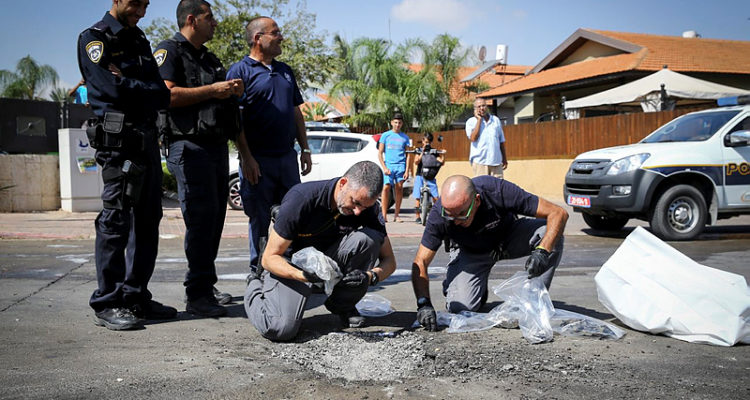After more than two years of relative quiet, recent rocket fire from Gaza renews feeling of vulnerability for Sderot residents.
By Steve Leibowitz, World Israel News
Sixteen rockets have been fired at Israel from the Gaza strip in recent days, and the feeling of trepidation is returning for residents of the border town of Sderot who lived through the traumatic experience of the Gaza war in 2014.
The IDF on Thursday issued a warning to Hamas that its “only option is to stop the rocket fire” and that Israel will not tolerate anything less than “complete quiet” on its Gaza border. But those warnings and IDF retaliation did not stop the rocket fire nor have they eased the fears of those living in the Israeli city closest to the Gaza border.
Noam Bedein of the Sderot Media Research Center told World Israel News (WIN) that tensions began following the IDF destruction of a tunnel on November 20, killing as many as 14 terrorists. “We knew that the terrorists would try to retaliate for their loses,” said Bedein, adding, “Trump’s announcement on Jerusalem made renewed rocket fire inevitable.”
Sderot, along with the rest of the border area around the Gaza Strip, has been booming in the last two years. New building projects are underway, and there is actually a waiting line for those wanting to live in those communities. “Now attention has once again turned to ‘when will the next siren go off’ signaling 15 seconds to find shelter,” said Bedein. “We who live in Sderot have come to be quite resilient,” said Bedein, “but the tensions came back quickly, and once again we are playing a game of Russian roulette. It can be quiet for awhile, then a siren, and all that uncertainty comes flowing back from years past.”
Sderot residents are physically prepared. In the past few years the government has invested several hundred million dollars in shelters. “Basically, every home and public building has a shelter and chances of reaching safety within the 15 seconds of hearing the alarm are quite good,” said Bedein. However, “the uncertainty in people’s minds is not a physical problem that can be overcome. Our psychologists and socials workers are once again working overtime, especially with the kids.”
Since 2001, rocket attacks on the city have killed 13 Israelis, wounded dozens and caused millions of dollars in damage. Studies have found that air raid sirens and explosions have caused severe psychological trauma in some residents, including children aged 4–18 suffering from post-traumatic stress, sleeping disorders and severe anxiety.
In July and August of 2014, the IDF fought a long war with Hamas in Gaza. When it ended, Israel determined that any rocket or mortar fired from Gaza would be met with an immediate Israeli response. The army says that the result has been two of the quietest years the southern towns have ever known. According to the army spokesman, “The deterrence built up since 2014 was not built in a day and it won’t come crashing down within a week.”
His words are of small comfort for residents of Sderot.





